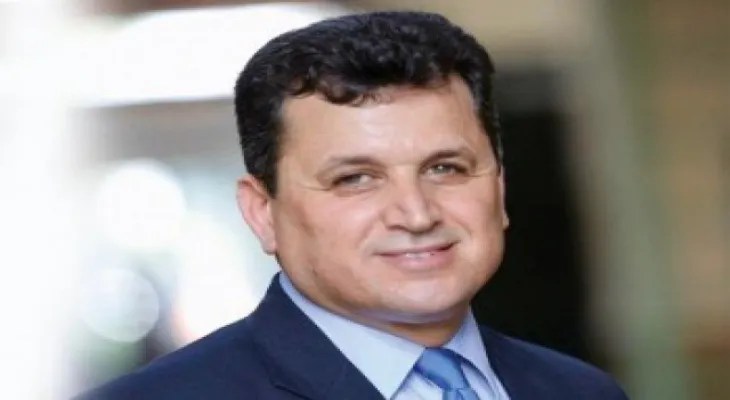Search here
Newspaper
Search here

Arab Canada News
News

Published: November 27, 2024
Finally, in a dramatic manner, a ceasefire was announced between Hezbollah and Lebanon, but to understand what drove the conflicting parties to reach this result, which made the world breathe a sigh of relief after holding its breath for a long and difficult period amidst a bloody struggle that was the most horrific and deadliest, yet brought with it huge surprises that changed many concepts in the regional and international situation.
The war between Hezbollah and Israel is not merely a military conflict, but its roots extend into complex regional and international issues.
Moreover, this conflict significantly impacts the stability of Lebanon and the region as a whole.
Ending this war requires addressing the underlying issues that fuel the ongoing tensions between the two sides, with a focus on finding long-term diplomatic and political solutions in the region and beyond.
The Roots of the Conflict between Hezbollah and Israel Based on Existing Regional and International Perspectives
1. The Border Dispute:
• The "Shebaa Farms" area is considered a historic point of contention, where Lebanon claims that this land belongs to it, while Israel insists it is part of the occupied Syrian territories.
2. The Iranian Presence:
• Iran's support for Hezbollah with weapons and funding makes the party a key player in regional conflicts, raising concerns in Israel, which sees it as a direct threat.
3. External Interventions:
• The United States, Russia, and Gulf States play a role in complicating the conflict, hindering the reach of peaceful solutions.
4. The Deterrence Equation:
• Hezbollah justifies its continued armament as a necessity to defend Lebanon, while Israel sees this weaponry as a threat to its security.
5. The War on Gaza:
• Hezbollah knows well that the war on Gaza and the victory of the Israeli occupation there will represent the last straw that could break the camel’s back regarding its existence and presence as an influential force in the Lebanese arena and the entire region.
Challenges Ahead of Ceasing the War
1. Lack of Trust:
• The absence of trust between the two sides makes any agreement fragile and susceptible to collapse in the event of provocations or regional changes.
2. The Role of Regional Powers:
• The conflict between Iran and Israel is one of the main drivers of the war, where Hezbollah is used as an Iranian proxy in confrontation with Israel.
• There is a fear that the ceasefire may be based on serving the interests and agendas of regional powers temporarily, which could quickly collapse in the absence of a clear political horizon that provides radical and lasting solutions to these conflicts, which are increasingly inclined towards achieving unseen ideological, religious, and doctrinal agendas that have now become apparent.
3. Weakness of the Lebanese State:
• The Lebanese government is unable to exert its full control over southern Lebanon, complicating any attempts at mediation or de-escalation, which is considered one of the most significant challenges that have kept this area in a state of constant tension.
The Essential Elements for Ceasing the War
1. Activating the Role of the United Nations:
• Enhancing the role of the UNIFIL forces present in southern Lebanon to implement Security Council resolutions, such as Resolution 1701, and to ensure respect for the ceasefire.
2. Comprehensive Regional Dialogue:
• Launching a regional initiative that includes Iran, Israel, and Lebanon, with international support, to search for a long-term mechanism to ensure border security.
3. Gradual Disarmament:
• Achieving sustainable peace based on justice and cooperation to establish the authority of the state by finding a formula for disarming all forces outside the state institutions, in parallel with ensuring Lebanon's security and sovereignty, along with providing international guarantees to deter any Israeli aggressions within a binding international legislation preventing Israel from violating Lebanese territory and committing to international laws and resolutions.
4. Development of Southern Lebanon:
• Strengthening infrastructure and economic development in southern Lebanon to reduce armed conflicts and encourage stability.
5. Resolving the Palestinian Issue:
• Finding a just and lasting solution to the Palestinian issue will create prospects for peaceful and sustainable coexistence in the region and will generate prosperity that positively impacts individual lives, enhances the economies of states, elevates societal cultures, and boosts creative capacities in creating purposeful partnerships for growth in the region.
The cessation of the war between Hezbollah and Israel represents a real turning point towards building and transforming the entire region for the better if it leads to the removal of all elements of tension and conflict and overcoming the huge challenges facing stability in the region and the world. This undoubtedly requires the concerted efforts of effective and sustained local, regional, and international actions to ensure that this is permanently implemented.
This conflict reflects broader power balances that extend beyond Lebanon, making piecemeal solutions insufficient, and lasting peace requires building trust and addressing root issues, from the border dispute to Iranian influence, and also the Palestinian issue, especially regarding the siege and the attempts to re-occupy Gaza. Despite significant challenges, constructive political dialogue remains the most effective means to achieve sustainable stability in the region based on justice; otherwise, the prospects will fail, challenges will prevail, and the region will be engulfed in destructive wars!
Comments